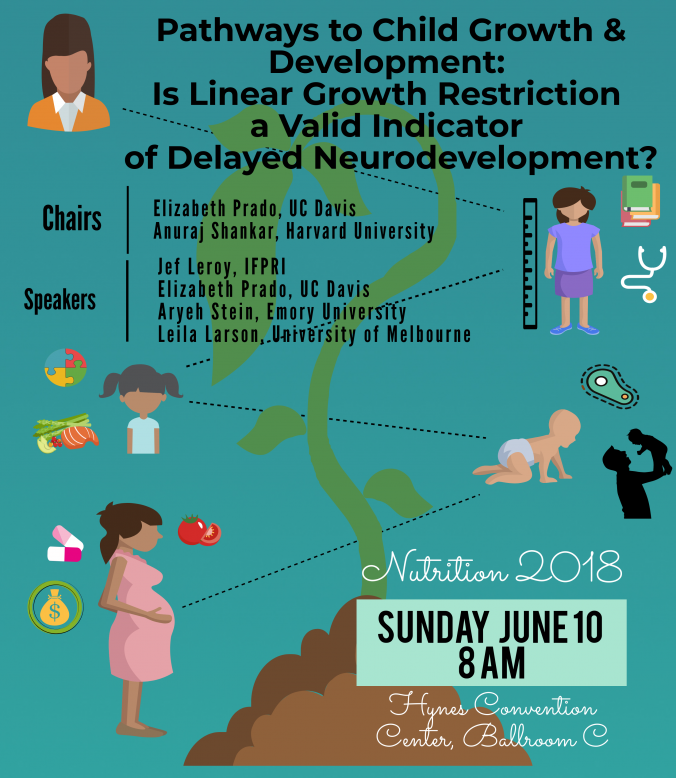Sunday, June 10, Hynes Convention Center, Ballroom C
Full Schedule
An estimated 155 million children are stunted and stunted growth is consistently associated with delayed cognitive development. This strong and consistent association has led to the widespread use of stunted growth as an indicator of delayed neurodevelopment. Interventions that decrease stunting are assumed to improve neurodevelopment. Likewise, it is commonly assumed that a country’s progress in reducing stunting will correspond to improving children’s brain development. These assumptions are only valid if the same underlying factors cause both linear growth failure and delayed neurodevelopment. An alternative possibility is that linear growth and neurodevelopment are constrained by different co-occurring environmental risk factors. If this is the case, then reducing the prevalence of stunting through an intervention or through a country’s progress over time may not correspond to improvements in children’s neurodevelopment. The goal of this symposium is to present novel evidence to test these two contrasting possibilities. With new analyses of large longitudinal cohort studies and meta-analyses, the presentations will address extent to which the determinants of linear growth faltering and delayed neurodevelopment are independent versus shared, and compare the effects of various types of interventions on each outcome.

